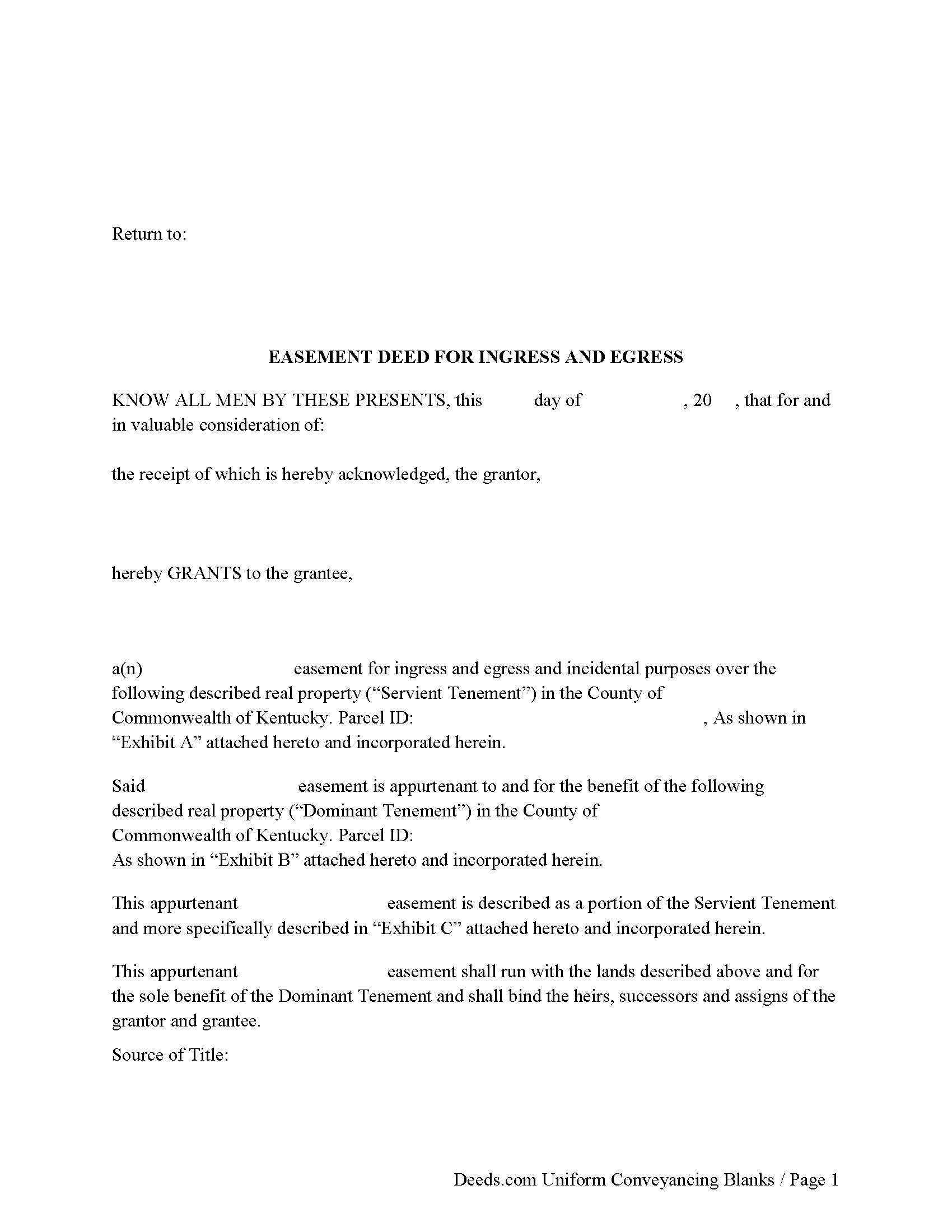Download Kentucky Easement Deed Legal Forms

Kentucky Easement Deed Overview

An easement is the right of one person to use the real property of another person for a specific purpose without actually possessing the property. Easements are either affirmative or negative. An easement deed is the instrument which creates this right. In Kentucky, easements can be created by deed and are subject to the same formalities as other instruments of real property.
Every deed in Kentucky, unless an exception is made, is construed to include all buildings, privileges, and appurtenances of every kind attached to the land being conveyed (381.200).
Additional easements, such as solar and conservation easements can also be obtained. A conservation easement is a non-possessory interest of a holder in real property imposing limitations or affirmative obligations for the purpose of retaining or protecting the natural, scenic, or open space values of real property (382.800). This type of deed may be created, conveyed, recorded, assigned, released, modified, terminated, or otherwise altered or affected in the same manner as other easements (382.810).A solar easement can be obtained in Kentucky for the purpose of ensuring access to direct sunlight. This type of easement should be created in writing and shall be an interest in real property that may be acquired or transferred and is subject to the same recording and conveyancing requirements as other real estate instruments. A solar easement cannot be acquired by prescription (381.200).
Since an easement deed is subject to the same formalities as other real estate deeds, it must be signed and acknowledged by the grantor and may be admitted to record in Kentucky when it has been proved or acknowledged in one of the following ways: (A) acknowledged by the county clerk by the party making the deed (the grantor); (B) proved by two subscribing witnesses, or by one subscribing witness, who also proves the attestation of the other; (C) by a certificate of a county clerk of Kentucky, or any notary public, stating that the deed has been acknowledged before him by the party making the deed or proved before him in the manner provided by statute. Additional methods of proving deeds are stated in the Kentucky Annotated Statutes (382.130). If executed out of state, an easement deed can be admitted to record when it is certified in the manner prescribed by Kentucky Statutes (KRS 382.140). Deeds that only convey utility easements or right-of-ways do not require a Statement of Consideration in order to be recorded.
All easement deeds and other instruments required by law to be recorded in order to be effectual against purchasers without notice, or creditors, should be recorded in the county clerk's office of the county where the property, or the greater part of the property, is located (382.110). All real property instruments will take effect in the order that they are legally acknowledged or proved and lodged for record with the county clerk (382.280).
(Kentucky Easement Deed Package includes form, guidelines, and completed example)